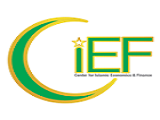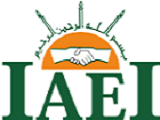Antecedents and Consequences of Muslim Millennials Attitude Towards Halal Personal Care Products
Abstract
In Indonesia, the millennial generation is the generation that dominates the population. This is a promising target market for companies or producers of personal care products. This research focuses on the attitudes of the millennial generation towards halal personal care products. The method used is quantitative research with primary data taken from 143 millennial generation female consumer respondents in Jakarta and Tangerang with data collection techniques using purposive sampling. The data analysis used is Partial Least Square (PLS) analysis. Based on the results, the attitude of the millennial generation towards halal personal care products is significantly influenced by religiosity and halal knowledge. At the same time, media exposure has no significant influence on the attitude of the millennial generation towards halal personal care products.
Keywords
Full Text:
PDFReferences
Abd Rahman, A., Asrarhaghighi, E., & Ab Rahman, S. (2015). Consumers and halal cosmetic products: Knowledge, religiosity, attitude and intention. Journal of Islamic Marketing, 6(1), 148–163. https://doi.org/10.1108/JIMA-09-2013-0068
Adiba, E. M. (2019). Consumer Purchasing Behavior of Halal Cosmetics: A Study on Generations X and Y. Journal of Islamic Monetary Economics and Finance, 5(1), 169–192. https://doi.org/10.21533/isjss.v2i1.52
Ahmad, A., Tangngareng, T., Harun, A., & Masri, M. (2019). Halal Product: New Market Opportunity in Challenging the Industrial Revolution 4.0, 4–9. https://doi.org/10.4108/eai.2-5-2019.2284751
Aisyah, M. (2017). Consumer Demand on Halal Cosmetics and Personal Care Products in Indonesia. Al-Iqtishad: Journal of Islamic Economics, 9(1), 125–142. https://doi.org/10.15408/aiq.v9i1.1867
Ajzen, I., & Fishbein, M. (1972). Attitudes and normative beliefs as factors influencing behavioral intentions. Journal of Personality and Social Psychology, 21(1), 1–9. https://doi.org/10.1037/h0031930
Ambali, A. R., & Bakar, N. A. (2014). People’s Awareness on Halal Foods and Products : Potential Issues for Policy-Makers. Procedia - Social and Behavioral Sciences, 121(2014), 3–25. https://doi.org/10.1016/j.sbspro.2014.01.1104
Asih, D., Setini, M., Dharmmesta, B. S., & Purwanto, B. M. (2020). Religiosity and spirituality: Conceptualization, measurement and its effect on frugality. Management Science Letters, 10, 4023–4032. https://doi.org/10.5267/j.msl.2020.7.007
Astogini, D., Wahyudin, & Wulandari, S. Z. (2011). Aspek Religiusitas dalam Keputusan Pembelian Produk Halal. Jeba, 13(1), 1–8.
Bin Nawawi, S., Bt. Mohd. Roslin, R., Hamid, & Bt. Abdul, N. (2016). Customers’ Intention to Repurchase Halal Personal Care Products: The Moderating Role of Religiosity. In International Business Research 2nd Advances in Conference ABRIC2016 (pp. 39–54).
Briliana, V., & Mursito, N. (2017). Asia Paci fi c Management Review Exploring antecedents and consequences of Indonesian Muslim youths ’ attitude towards halal cosmetic products : A case study in Jakarta. Asia Pacific Management Review, 1–9. https://doi.org/10.1016/j.apmrv.2017.07.012
Choudhury, M. A. (2018). The ontological law of Tawhid contra ‘Shari’ah-compliance’ in Islamic portfolio finance. International Journal of Law and Management, 60(2), 413–434. https://doi.org/10.1108/IJLMA-01-2017-0001
Clarita, N. M. A., Zimbalist, S. B., & Setiowati, R. (2020). Factors Impacting Customer Attitude toward Buying Halal Cosmetics in Jabodetabek. The Winners, 21(1), 7–14. https://doi.org/10.21512/tw.v21i1.5873
DinarStandard. (2019). 2019/20 State of Global Islamic Economy Report: Driving The Islamic Economy Revolution 4.0.
Duffett, R. G. (2015). Facebook advertising ’ s influence on intention-to-purchase and purchase amongst Millennials Facebook advertising ’ s influence on intention -to-purchase and purchase amongst Millennials. Internet Research, 25(4), 498–526. https://doi.org/10.1108/IntR-01-2014-0020
Endah, N. H. (2014). Perilaku Pembelian Kosmetik Berlabel Halal oleh Konsumen Indonesia. Jurnal Ekonomi Dan Pembangunan, 22(1), 11–25. https://doi.org/10.14203/JEP.22.1.2014.25-39
Faturohman, I. (2019). Faktor yang Mempengaruhi Minat Beli terhadap Makanan Halal. Studi pada Konsumen Muslim di. In Prosiding Industrial Research Workshop and National Seminar (Vol. 10, pp. 882–893).
Ghozali, I., & Latan, H. (2015). Partial Least Square, Konsep Teknik, dan Aplikasi menggunakan program SmartPLS 3.0 untuk Penelitian Empiris. Semarang: Undip Press.
Kaifi, B. A., Nafei, W. A., Khanfar, N. M., & Kaifi, M. M. (2012). A Multi-Generational Workforce : Managing and Understanding Millennials, 7(24), 88–93. https://doi.org/10.5539/ijbm.v7n24p88
Kamarulzaman, Y., Veeck, A., Mumuni, A. G., Luqmani, M., & Quraeshi, Z. A. (2015). Religion , Markets , and Digital Media : Seeking Halal Food in the U . S . https://doi.org/10.1177/0276146715622243
Kementerian Pemberdayaan Perempuan dan Perlindungan Anak, & Badan Pusat Statistik. (2018). Statistik Gender Tematik: Profil Generasi Milenial Indonesia.
Kotler, P. (1994). Reconceptualizing marketing: An interview with Philip Kotler. European Management Journal, 12(4), 353–361. https://doi.org/10.1016/0263-2373(94)90021-3
Kotler, P., & Pfoertsch, W. (2007). Being known or being one of many: The need for brand management for business-to-business (B2B) companies. Journal of Business & Industrial Marketing, 22(6), 357–362. https://doi.org/10.1108/08858620710780118
Kurniawati, D. A., & Savitri, H. (2019). Awareness level analysis of Indonesian consumers toward halal products. Journal of Islamic Marketing. https://doi.org/10.1108/JIMA-10-2017-0104
Larasati, A., Rahayu, S., Hati, H., & Safira, A. (2018). Religiusitas dan Pengetahuan Terhadap Sikap dan Intensi Konsumen Muslim untuk Membeli Produk Kosmetik Halal, 8(April), 105–114. https://doi.org/10.15408/ess.v8i2.7459
Mukhtar, A., Butt, M. M., Mukhtar, A., & Butt, M. M. (2012). religiosity Intention to choose Halal products : the role of religiosity. https://doi.org/10.1108/17590831211232519
Nugroho, L. (2020a). Bank Syariah dan Dinamika Financial Technology (Fintek) Pada Era Revolusi Industri 4.0. In Udin Saripudin (Ed.), Eksistensi Bisnis Islami di Era Revolusi Industri 4.0 (First, pp. 153–181). Bandung: Widina Bhakti Persada.
Nugroho, L. (2020b). Konsep Ekonomi dan Perbankan dalam Islam.
In Pengantar Perbankan Syariah (1st ed., Vol. 1, pp. 1–26). Widina Bhakti Persada bandung. https://doi.org/10.1017/CBO9781107415324.004
Nugroho, L. (2020c). Pengetahuan Konsumen Vis A Vis Perubahan Perilaku Konsumen Pada Era Digital. In Perilaku Konsumen dan Perkembangannya di Era Digital (pp. 65–77). Widina Bhakti Persada.
Nugroho, L., Badawi, A., Hidayah, N., & Ahmad, N. H. (2020). Snapshot in Customer Deposit of Islamic Bank Religion, Age, and Gender as The Reflection of Pancasila Five Principles of Indonesia Nation. Journal of Research in Business, 5(1), 74–95. https://doi.org/10.35333/JRB.2020.177
Nugroho, L., Harnovinsah, Putra, Y. M., & Prinoti. (2020). Analysis of Comparison of Islamic Banks with Financial Technology (Fintech) In Disbursements of Micro-Financing Based on Requirements, Services Speed and Margin. Journal of Islamic Economics & Social Science-JIESS, 1(1), 1–10.
Nugroho, L., Meiwanto Doktoralina, C., Indriawati, F., Safira, S., & Yahaya, S. (2020). Microeconomics and Tawhid String Relation Concept (TSR). International Journal of Economics and Business Administration (IJEBA), 8(3), 293–306. https://doi.org/10.35808/ijeba/516
Nugroho, L., Utami, W., & Doktoralina, C. M. (2019). Ekosistem Bisnis Wisata Halal dalam Perspektif Maqasid Syariah. Perisai : Islamic Banking and Finance Journal, 3(2), 84–92. https://doi.org/10.21070/perisai.v3i2.1964
Rohmatun, K. I., & Dewi, C. K. (2017). Pengaruh Pengetahuan Dan Religiusitas Terhadap Niat Beli Pada Kosmetik Halal Melalui Sikap, 1(1), 27–35.
Rowley, J. E. (2002). Reflections on customer knowledge management in e-business. Qualitative Market Research: An International Journal, 5(4), 268–280. https://doi.org/10.1108/13522750210443227
Sekaran, U., & Bougie, R. (2016). Research Methods For Business: A
Skill Building Approach. John Wiley & Sons. Retrieved from https://books.google.co.id/books?hl=en&lr=&id=Ko6bCgAAQBAJ&oi=fnd&pg=PA19&dq=Research+methods+for+business:+A+skill+building+approach&ots=2B5QZ5I_mP&sig=bfjSuyh19EupVWN6CXBsCoJLb-4&redir_esc=y#v=onepage&q=Research methods for business%3A A skill building
Suki, N. M., & Salleh, A. S. A. (2018). Mediating effect of Halal image on Muslim consumers’ intention to patronize retail stores: some insights from Malaysia. Journal of Islamic Marketing, 9(2), 338–355.
Thomson Reuters. (2017). State of the Global Islamic Economy Report 2018/19. Dubai International Financial Centre.
Thomson Reuteurs. (2016). State of The Global Islamic Economy Report 2016/17. https://doi.org/10.1111/j.1442-200X.1983.tb01709.x
Tulloch, J. C., & Zinn, J. O. (2011). Risk , health and the media. Health, Risk & Society, 13(1), 1–16. https://doi.org/10.1080/13698575.2010.543123
Worthington, E. L., Wade, N. G., Hight, T. L., Ripley, J. S., McCullough, M. E., Berry, J. W., … O’Connor, L. (2003). The Religious Commitment Inventory-10: Development, refinement, and validation of a brief scale for research and counseling. Journal of Counseling Psychology, 50(1), 84–96. https://doi.org/10.1037/0022-0167.50.1.84
Yanti, I. (2018). Analisis Pengaruh Faktor Psikologis dan Religiusitas Perilaku Muslimah Kota Medan terhadap Konsumsi Kosmetik Halal dan Baik. At-Tawassuth, 3(2), 293–313.
Yulianti, R. (2016). Pengaruh Minat Masyarakat Aceh terhadap Keputusan Memilih Produk Perbankan Syariah di Kota Banda Aceh. Jurnal Dinamika Akuntansi Dan Bisnis, 2(1), 14–28. https://doi.org/10.24815/jdab.v2i1.3599
DOI: http://dx.doi.org/10.24042/febi.v5i2.7203
Refbacks
- There are currently no refbacks.
Copyright (c) 2020
Ikonomika : Jurnal Ekonomi dan Bisnis Islam is a Journal of Islamic Economics and Business, Published by the Faculty of Islamic Economics and Business at UIN Raden Intan Lampung Indonesia. This work is licensed under a Creative Commons Attribution-ShareAlike 4.0 International License.






11.png)



.png)
1.png)
.png)
.png)
.png)
2.png)
.png)
.png)
.png)
2.png)
5.png)